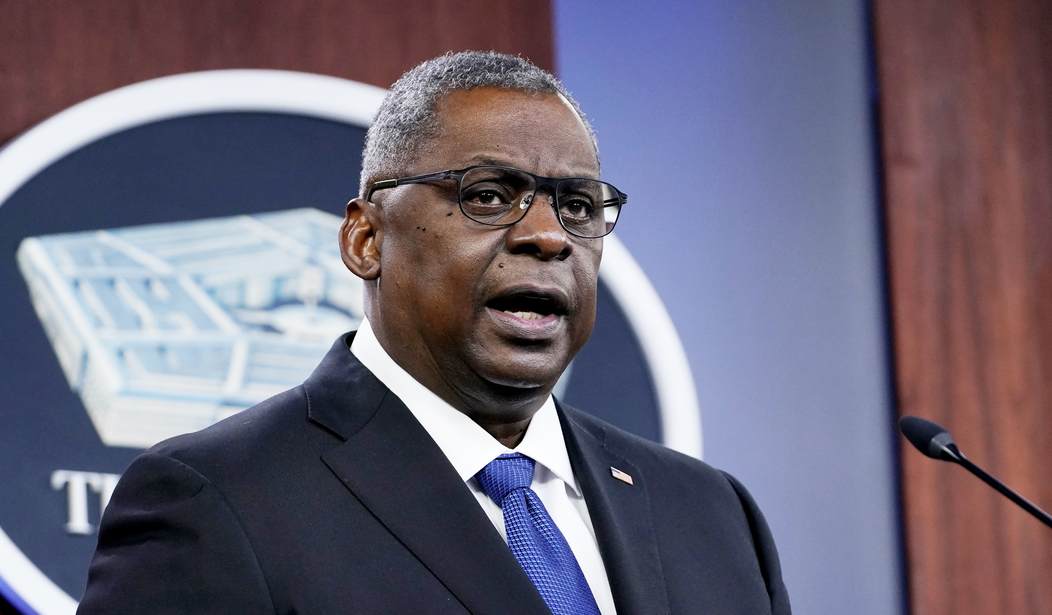U.S. Defense Secretary Lloyd Austin is attending the Shangri-La Dialogue Asian security summit in Singapore this weekend, as we previously wrote, and he hasn’t been silent about China refusing to engage with the U.S. at the summit over tensions in the region. As my colleague Brittany Sheehan wrote:
U.S. Defense Secretary Lloyd Austin expressed his disappointment over China’s refusal to meet with him during his visit to the region, calling it “unfortunate.”
This comes in the wake of “unnecessarily aggressive” actions by a Chinese military plane towards a U.S. reconnaissance aircraft Tuesday:
On Tuesday, the United States military reported that a Chinese fighter jet flew aggressively close to a U.S. reconnaissance aircraft over the South China Sea. U.S. Indo-Pacific Command said in a statement that the Chinese J-16 fighter jet “flew directly in front of the nose of the RC-135, and called the maneuver, “unnecessarily aggressive.”
On Saturday, Sec. Austin made remarks at the summit:
Austin addressed the lack of communication in his speech on Saturday, saying that he is “deeply concerned” that the People’s Republic of China “has been unwilling to engage more seriously on better mechanisms for crisis management.”
“For responsible leaders, the right time to talk is anytime. The right time to talk is every time. And the right time to talk is now,” Austin said. “Dialogue is not a reward. It is a necessity.”
Austin noted that he and Chinese Defense Minister Li Shangfu greeted each other with a smile at a banquet Friday night, but called on Beijing to do more.
“A cordial handshake over dinner is no substitute for serious engagement,” he said.
He continued, referencing the way China’s own “alarming number of risky intercepts”—like the incident with the U.S. plane—have led to tensions, calling these “coersion and bullying” tactics:
Criticizing China for its “alarming number of risky intercepts of US and allied aircraft” in international airspace, Austin added that the US would support allies and partners against “coercion and bullying.” […]
“We do not seek conflict or confrontation,” Austin said. “But we will not flinch in the face of bullying or coercion.”
Although Austin warned about this behavior, he also said that conflict with China isn’t “imminent [or] inevitable,” explaining that every country “has a stake” in both “maintaining peace and stability” and deterring conflict in the Taiwan Strait.
“Conflict is neither imminent nor inevitable. Deterrence is strong today – and it’s our job to keep it that way,” Austin said in remarks at the Shangri-La Dialogue security summit on Saturday, which is being attended by representatives from dozens of countries including China.
“The whole world has a stake in maintaining peace and stability in the Taiwan Strait. The security of commercial shipping lanes and global supply chains depends on it. And so does freedom of navigation worldwide. Make no mistake: conflict in the Taiwan Strait would be devastating.”
China responded after Austin’s speech, in a Chinese TV interview:
Shortly after Austin spoke on Saturday, Chinese People’s Liberation Army Lieutenant General Jing Jianfeng told China’s state broadcaster CCTV that the US defense chief’s comments on Taiwan were “completely wrong.”
Jing accused Washington of trying to “consolidate hegemony and provoke confrontation,” adding that US actions were damaging regional peace and stability.
We’ll keep you posted on the efforts for detente with China; Defense Minister Li will make remarks to the summit attendees on Sunday.












Join the conversation as a VIP Member